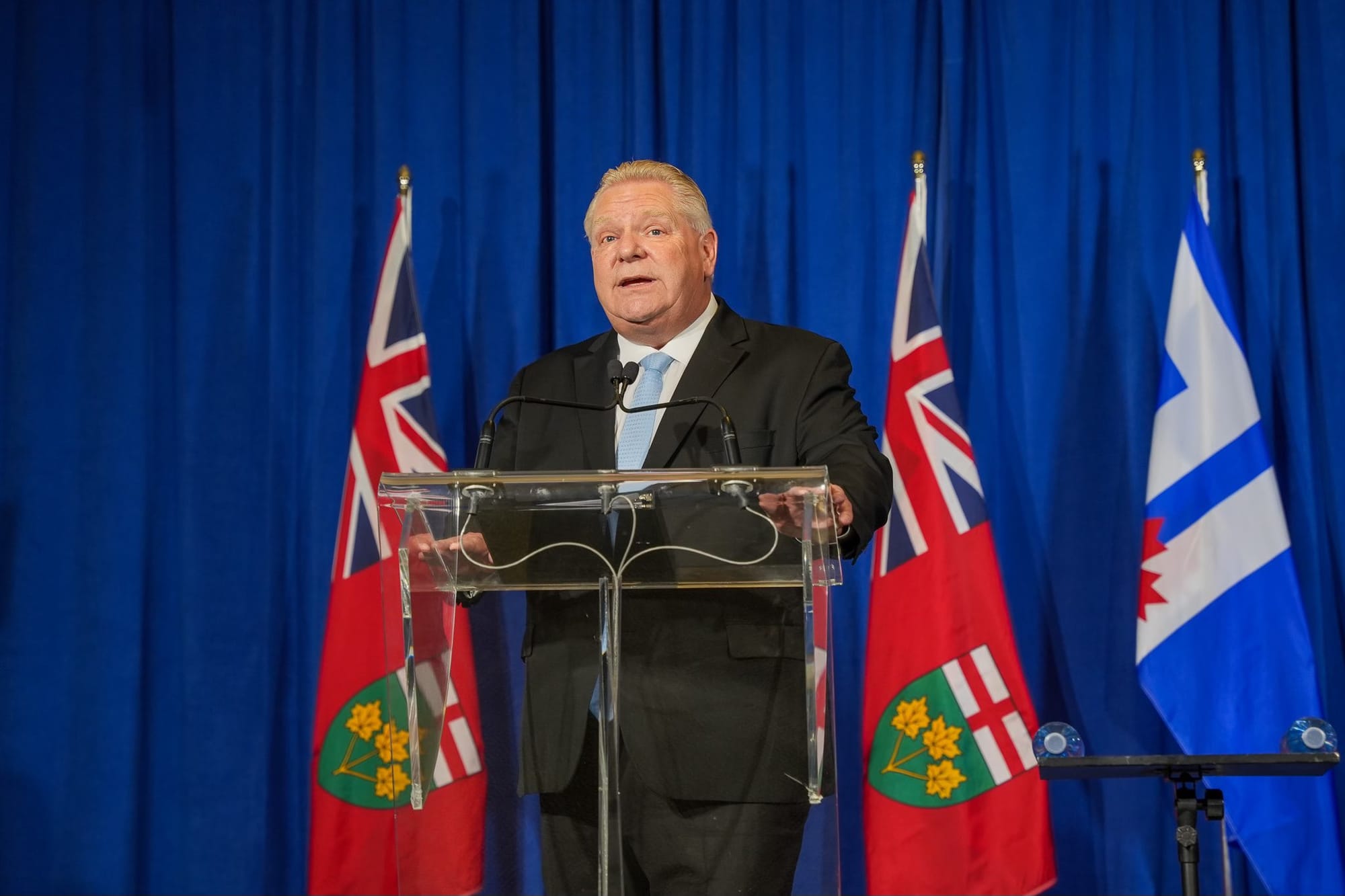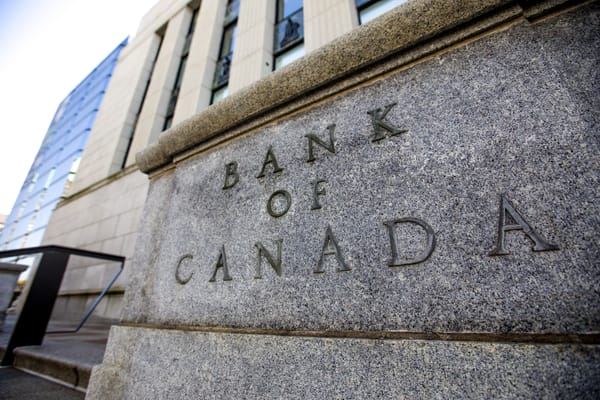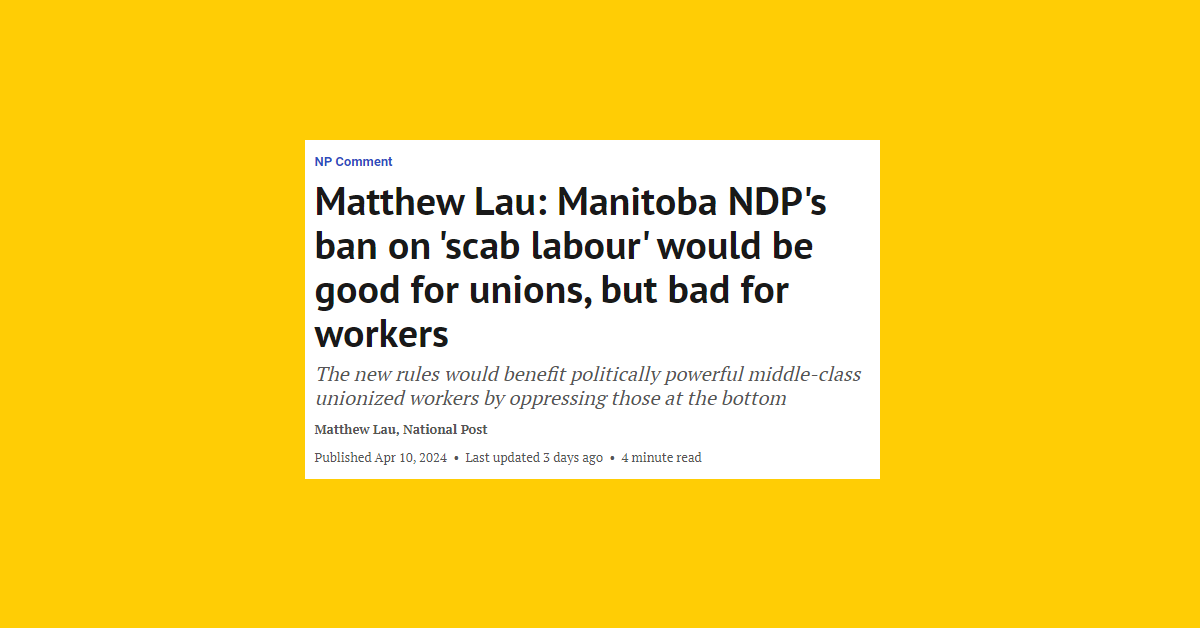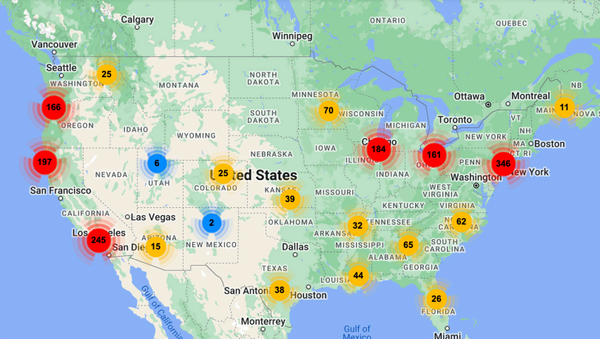
This past week, the Toronto Star reported that the price tag of Ontario Premier Doug Ford government’s failed attempt to impose wage restraint on public sector workers has now topped $4 billion. Though a considerable sum, the money owed to workers is likely to grow much higher.
Passed in 2019, Bill 124 — the so-called Protecting a Sustainable Public Sector for Future Generations Act — capped wage increases at 1 per cent annually for three years for public and post-secondary education workers, healthcare workers, provincial public servants, and a range of non-profit employees working for organizations receiving funding from the government of Ontario.
Labour opposed the legislation and argued that it undermined free collective bargaining. Because the law was time-limited, the Ford government believed Bill 124 to be a lawful curtailment of collective bargaining rights. Thankfully, the courts disagreed.
In late November 2022, the Superior Court of Ontario determined that Bill 124 infringed on union members’ free association rights under section 2(d) of the Charter of Rights and Freedoms. “Free association” includes the right to free collective bargaining and the right to strike. Removing wages from negotiation rendered meaningful bargaining all but impossible.
In his decision, Justice Markus Koehnen concluded that there was no justification for Bill 124, fiscal or otherwise. In the past, wage restraint legislation had been upheld because of the supposed need to address unsustainable public spending, but in Ontario, no such case could be made.
The Ford government appealed the Superior Court’s decision, further delaying the compensation owed to many workers and spending untold sums on legal expenses. Finally, in February of this year, Ontario’s Court of Appeal upheld the lower court’s decision and Ford, somewhat unexpectedly, stood down.
After initially giving the impression that a further appeal to the Supreme Court of Canada might be in the offing, the Ontario PCs announced that they would not challenge the February 12 decision and would instead move to repeal Bill 124 in its entirety.
On February 23, the government axed the legislation through an order-in-council and comically argued that repealing the law would “solve the inequality of workers created by the recent court decision.” In the world of the Ford Conservatives, a court decision upholding collective bargaining rights created “inequality,” not an unconstitutional law infringing on workers’ rights.
Although the government has reluctantly scrapped the law, no public repentance seems to be forthcoming. In fact, Finance Minister Peter Bethlenfalvy said he had no regrets about Bill 124, claiming 2019 was a “different time” when inflation was low, whatever that matters.
Of course, Bill 124 was but another example of Canadian governments attempting to erode collective bargaining rights. In a certain sense, that the law was found unconstitutional and repealed confirms a recent trend. Governments are beginning to recognize that brazen legislation may not be the most effective and efficient means through which to undermine public sector union rights. As research from the Parkland Institute, which I discussed last week, demonstrates, many governments are instead turning to bargaining mandates and other non-legislative measures to impose wage restraint without running afoul of the law.
Nevertheless, the Progressive Conservative government in Ontario is now paying the piper for legislation designed to strip collective bargaining rights from public sector union members and suppress their wages.
While many unions previously awaited the final word on Bill 124’s legality, arbitrators were already awarding retroactive pay increases to public sector union members whose collective agreements contained “reopener” clauses. In perhaps the largest such award, Ontario nurses received an average of a 16 per cent wage increase between March 31, 2023 and April 1, 2024, as a result of several arbitration decisions related to the impact of Bill 124.
Other healthcare employees and personal support workers, along with elementary and secondary school teachers, also received retroactive pay adjustments.
However, in other cases, addressing the fallout from the province’s attempt at wage restraint has not been so straightforward. For example, in the post-secondary education sector, Bill 124’s repeal is colliding head-on with ill-conceived spending cuts. After instituting a “tuition freeze,” the government provided only partial offset funding and instead told distressed schools to look for “efficiencies.” Under these conditions, fights over wages were almost inevitable. Contract faculty and teaching assistants at York University are on strike. A strike at the University of Toronto was narrowly averted. The Ford government effectively created a problem it now refuses to help solve.
And so, here we are. Bill 124 is dead and now the province needs to spend to rectify its own mistakes. Back in September 2022, the Financial Accountability Office of Ontario projected the government could wind up paying $8.4 billion over five years if its wage suppression law was repealed. With over $4 billion already spent and the government squirrelling away more in its “contingency fund” for payouts it will owe to other workers, surpassing the FAO’s 2022 estimation is likely.
However, such assessments of the cost of wage restraint legislation are by design far too narrow. Ford’s bill wreaked havoc across the public sector, particularly by exacerbating the healthcare crisis. Wage restraint contributed to an exodus of nurses and other healthcare workers, in turn generating unsustainable levels of stress and burnout. Consequently, healthcare was rendered inaccessible to people who needed it.
It’s nearly impossible to affix a price to these various social consequences. Yet a full accounting of the negative impacts of Bill 124 must include the myriad sources of suffering for which the bill is responsible. Undoing the damage will take much more than retroactive wage payments.
But perhaps this was the intention all along. The anticipated cost-savings from this bill always seemed marginal. In 2022, the FAO put them at slightly more than it projected the government would be forced to pay should Bill 124 be repealed. Moreover, as I pointed out at the time, in the eight years prior to Bill 124, the wages of Ontario public sector union members increased by an average of only 1.2 per cent a year (i.e., barely more than the 1 per cent imposed through legislation).
The long-game of the Ford government involves dismantling public healthcare and selling its parts to the private sector. If the primary consequence of running roughshod over union members’ collective bargaining rights is to further cripple a healthcare system already in crisis, perhaps the Conservatives consider this a win regardless.
For labour and the left, it shows that standing up for workers’ rights and protecting public healthcare go hand-in-hand.
Recent Class Struggle Issues
- March 4 | Collective Bargaining Rights Are Being Systematically Undermined
- February 26 | An Interview With The New President Of CAPE
- February 19 | The Growing Popularity Of Right-To-Work Laws Is Troubling
- February 12 | It’s Time For Anti-Scab Legislation In Every Jurisdiction








Member discussion